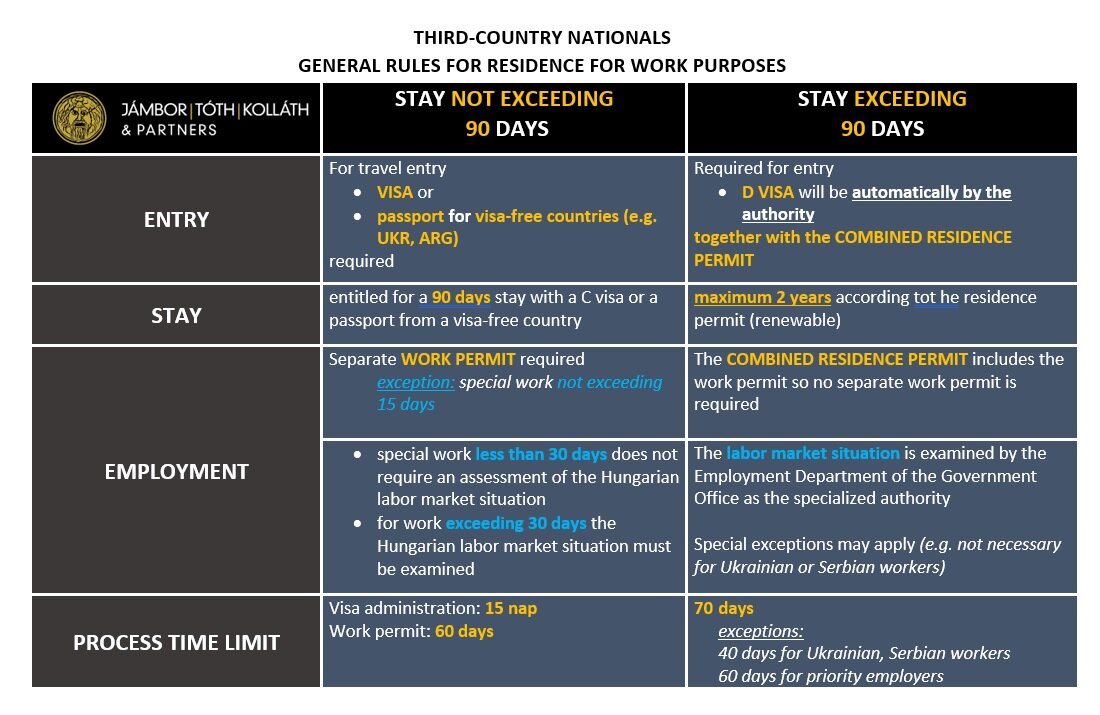Employment of third-country nationals in Hungary
2023.02.09.

The problem of labour shortages remains in many sectors for the time being, and the solution may lie in the rapidly expanding employment of third-country workers.
More and more companies are making use of this possibility, but navigating the maze of procedures is not an easy task.
Foreign companies coming to Hungary often face the challenge of not finding Hungarian workers with the right skills and knowledge to do the job, as despite the current recession, there is still a significant labour shortage in Hungary for certain professions.
Therefore, international companies often use their own or recruited non-EU workers, so-called third-country nationals, to carry out projects and work in Hungary.
Today, an increasing number of Hungarian companies wishing to remain competitive also employ third-country workers.
Another advantage of using third-country workers is that an international and multicultural team can easily boost business processes with new knowledge and experience.
However, once the recruitment process is complete, it is important to take legal and administrative steps. This includes, first and foremost, obtaining the necessary permits for residence and work, insurance in Hungary and even housing.
It is important to ensure that posted workers are also subject to the minimum employment rights and conditions - such as pay and benefits - that apply in the Member State concerned.
Obtaining a permit for the residence and employment of third-country workers is a complex process, given that several authorities are involved in issuing the permit, so companies wishing to reinforce their workforce with foreign workers should consult a professional.
The primary difference between the types of procedure is determined by the length of stay.
STAY NOT EXCEEDING 90 DAYS
If the duration of stay does not exceed 90 days, a visa is required for the stay in the case of countries subject to visa requirements, while for non-EU countries for which Hungary has granted visa-free travel, the worker can enter the country with his/her passport for a period of 90 days.
However, a separate work permit is still required (except for some special cases, such as installation, warranty, servicing and guarantee activities not exceeding 15 days), and if the work is to be carried out for more than 30 days, the Hungarian labour market situation must be examined to see whether there are any Hungarian unemployed persons suitable for the position.
The processing time for a residence visa is generally 15 days from the date of application, but it should be borne in mind that consulates can only accept applicants depending on their workload, so the actual waiting time can be much longer.
It takes 60 days to process an application for a work permit, and it is essential to submit a work permit application prior to the procedure.
STAY EXCEEDING 90 DAYS
If the duration of the stay exceeds 90 days, third-country nationals who wish to work in Hungary need a so-called "combined" work permit.
In this case, the Authority will issue the application for a work permit together with the residence permit in a special procedure, which is a significant relief for the employer and the worker.
The procedure also provides for the issuance of the D visa required for entry.
At the same time as the notification of the granting of the permit, the Aliens Department will notify the competent consulate where the worker can collect the visa.
The procedure requires, among other things, a prior agreement between the applicant worker and the employer in Hungary. This condition excludes the possibility of a pre-application for a work permit and subsequent job search.
The general time limit for the procedure is 70 days. The decision can only be challenged in court. Given that the permit is granted by the authority for a limited period, the employment relationship can only be established for a limited period
Once approved, the combined permit is valid for a maximum of 2 years, renewable for a further 2 years.
The above general rules are, of course, not exhaustive and there are many other specificities and exceptions which may arise depending on the circumstances of employment.
It is important to underline that special rules apply to so-called neighbouring third-country nationals, i.e. Ukrainian and Serbian workers, so that their administration is much faster and easier from a procedural point of view.
Our office has assisted a number of international and Hungarian companies with the legal procedures related to the Hungarian residence permits of the third-country workers they wish to employ in Hungary.
Thousands of successful cases are the key to our experience and expertise!
If you have any questions? Please contact us and ask for the help of our lawyers!
Author: dr. Igor Roland Jámbor



